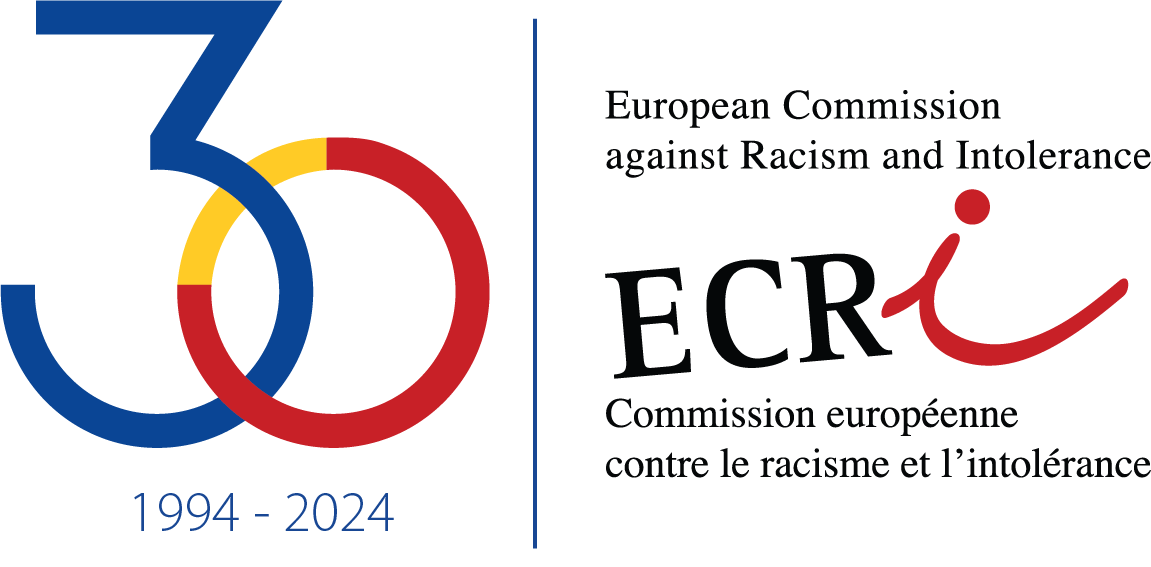Addressing the challenges posed by Russia’s war of aggression against Ukraine, addressing continued discrimination – despite certain progress - of LGBTI persons, Roma and Travellers, as well as the need for supporting civil society actors were the main thematic clusters of issues European governments and the society were confronted with over the past year, said European Commission against Racism and Intolerance (ECRI) in its annual report for 2022 published today.
The war of aggression launched by Russia (*) against Ukraine was preceded and still is accompanied by an ultra-nationalist discourse and propaganda. Russian leaders’ false narrative, from the highest political level, describing the democratically elected Ukrainian government and Ukrainians who did not consider themselves “pro-Russian” as Neo-Nazis was absurd, nauseating and an affront to the memory of the millions of victims of Nazism, ECRI says.
The migration flows from Ukraine as a result of the war, of the scale not seen since WWII, have posed unprecedented challenges to European states and societies. “Despite the overall commendable manner in which receiving countries catered for people fleeing Ukraine, the terms of protection <…> varied depending on the citizenship of those fleeing”, ECRI report says. Unequal treatment was reported vis-à-vis non-Ukrainians, such as people coming from Asian or African countries, at Ukrainian borders, as well as in receiving countries, with terms of protection appearing to be “of a far lower standard”. Besides, unequal treatment linked to ethnicity, for instance of Roma with Ukrainian citizenship, was observed. ECRI reiterates its expectation that any such reports will be effectively investigated. ECRI commends the authorities, equality bodies and civil society across Europe on their solidarity and stresses that such solidarity should remain “the new normal” in the management of current and future humanitarian crises.
Russia’s war against Ukraine has also led to hundreds of thousands of Russian citizens leaving Russia and settling in the Council of Europe member states for which they did not need entry visas. ECRI welcomes the fact that host country authorities and equality bodies have acted promptly to disperse the initial expressions of hostility and any related hate speech, but stresses that extra vigilance is required in this area.
The second cluster of issues identified by ECRI in 2022 was related to the situation of LGBTI persons in Europe which remained very uneven in Europe. On a positive side, some countries made it possible for same-sex couples to live in a registered partnership or adopt children, introduced legal bans on “conversion therapies” and on “sex-normalising” practice. However, the number of countries prohibiting such practices is still small, and ECRI further encourages the introduction of such bans. LGBTI people and their supporters continued to face severe difficulties in exercising their rights to freedom of expression and assembly. Some countries carried forward plans to define marriage as an act possible only between a man and a woman, or to anchor bans on adoption by same-sex couples in their constitutions. There are several European countries in which existence of LGBTI people is considered a taboo. LGBTI-phobic hate speech by politicians and attacks against LGBTI people are a stark reminder than far more needs to be done across Europe to prevent and combat discrimination, hate speech and hate-motivated violence against LGBTI persons. In 2023, ECRI is committed to adopt a new General Policy Recommendation on intolerance and discrimination against LGBTI people.
Antigypsyism and hate speech targeting Roma remains rife in Europe, as does discrimination against Roma and Travellers, ECRI report says. The Roma continue to be negatively depicted in media, school segregation of Roma children is still an issue, their housing conditions remain very poor in many European countries, and not enough is being done to improve the situation. “Regrettably evictions of Roma from irregularly erected dwellings remained ‘popular’ among voters in many European countries, prompting local authorities to be disposed towards such evictions, without proper safeguards”, ECRI notes.
At the same time, some progress has been observed with regard to compensation for Roma for the past wrongs committed against them in the form of illegal and often forced sterilisation, as well as for past police abuse. Racist police abuse against Roma is still an issue, though, and ECRI considers that “it is high time to take effective action to encourage Roma and witnesses to police abuse to come forward, provide them with appropriate support and ensure better police accountability”. States should make further efforts to organise police training, recruit mediators between Roma and the police, as well as Roma police officers.
Finally, in its annual report, ECRI deplores the shrinking space in which civil society actors are left to operate in some countries, and the undue interferences from the authorities they are confronted with. Registration procedures for NGOs were made more cumbersome, additional tax payments and unjustified administrative fines imposed, foreign funding regulation made more stringent. Cases of stigmatisation and intimidation of civil society actors by politicians and government officials were reported. Without all the relevant protected grounds – such as religion, sexual orientation or gender identity – being included in hate speech/crime legislation, it is virtually impossible for civil society actors to defend themselves. “An open and democratic space should be secured for these organisations,” ECRI concludes.
-------------
(*) ECRI is not in a position to look into hate speech and other matters falling within its mandate in temporarily occupied territories and the other areas within Council of Europe member States that are under the effective control of the Russian Federation. ECRI’s monitoring of the Russian Federation was terminated in March 2022, following the exclusion of Russia from the Council of Europe.




